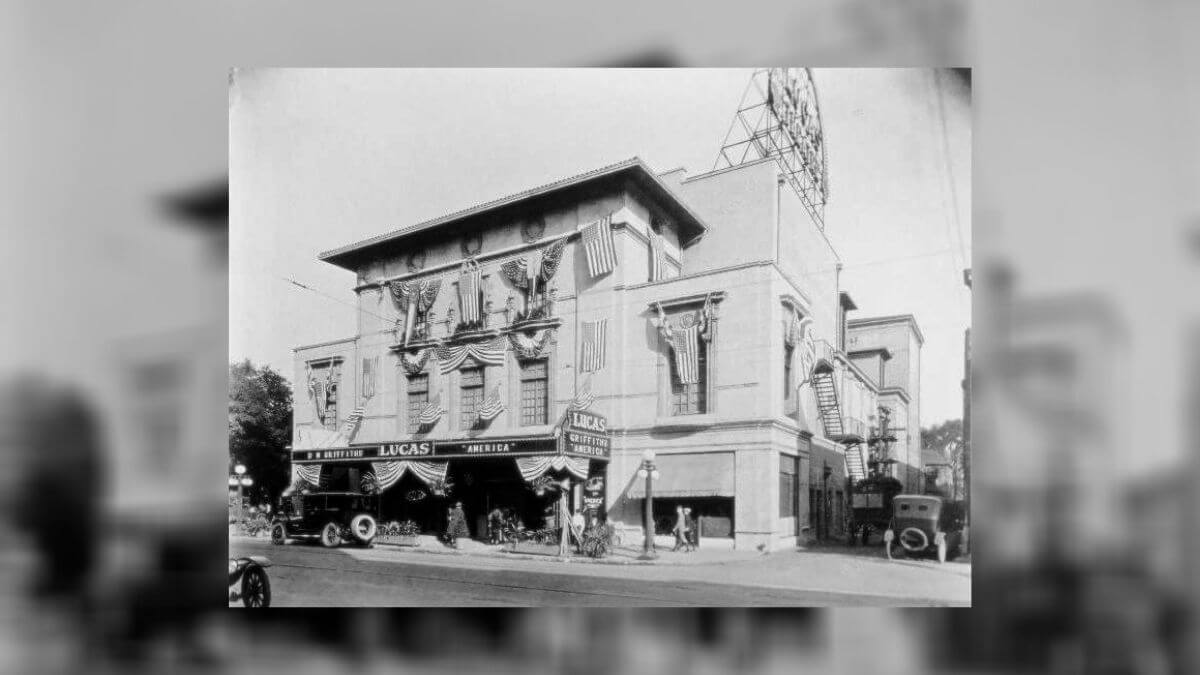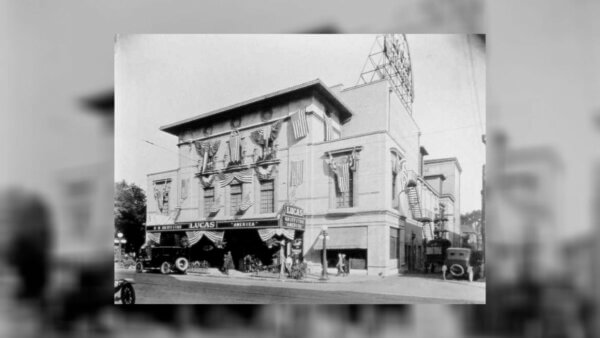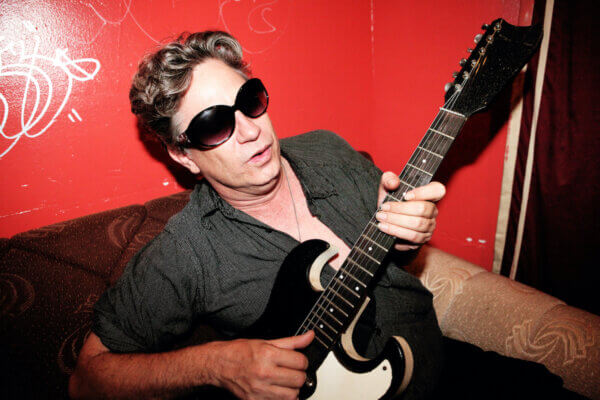Published in the Savannah Morning News.
By now, most anyone who follows the local cinema and performing arts world has likely heard of the recent, abrupt termination of the Lucas Theatre’s entire staff by a unanimous vote of its governing board. Unbeknownst to many, SCAD has long maintained a majority presence on the board of the nonprofit organization which oversees the Lucas, as well as footed the bill for the lion’s share of that historic venue’s annual operating expenses.
That arrangement began during a time of great financial insecurity for the then-floundering theatre and is widely credited with rescuing the Lucas from complete insolvency.
Which is to say, in a very real sense, since that fateful day it’s been pretty much SCAD’s to do with as they please.
According to the school (which also solely operates the similarly-sized Trustees Theater right around the corner), the move to eliminate all existing Lucas staff members was made in the name of “increased efficiency.”
The massively successful private art college has also pledged to “continue to provide quality programming, as well as financial and operational assistance” for the lovely and finely appointed 1921 movie palace which is used for a variety of public, private and college-related events – including occasional film screenings and live music and comedy concerts.
Let’s be honest here: SCAD has done wonders – absolute wonders – for this city.
Their impact on the economic vitality and international profile of Savannah is inestimable. They’ve also never enjoyed a reputation for giving even a tinker’s cuss what anyone outside of their uppermost administration thinks of the school’s business practices.
Many would say that in light of the college’s steady, impressive growth, that attitude has served them well, even as it has often resulted in less than stellar PR (sometimes on an international scale). However, the school is a private entity, and as such is certainly entitled to handle its myriad affairs in any ways it sees fit.
A little advice
That said, while it’s simply not in their DNA to care for my opinions on this subject (or those of any other area pundit, for that matter), as someone who decades ago provided live entertainment at the very first public fundraiser in support of restoring the long-shuttered Lucas; and as a local entertainment journalist who’s publicized and reviewed scores of shows and films there for the past 14 years; and as a devoted music, film and standup enthusiast who’s enjoyed countless events at that historic venue since its long-awaited reopening, I can’t help but offer up my own unsolicited advice on how the school might best “increase the efficiency” of their latest high-profile downtown real estate acquisition.
It’s simple: Breathe deeply, and consider taking a few steps back.
By that I mean one of the biggest reasons the Lucas is not (supposedly) as efficient as the school seemingly desires is that it’s been woefully underutilized for the past 17 years. This lovely venue always had the potential to host dozens more public, ticketed events per year than it has been allowed to (for a variety of underwhelming and, frankly, shortsighted reasons related to the “SCAD-vantageous” terms of that aforementioned financial arrangement).
While it may seem incredibly counter-intuitive for an institute of higher learning that is famously, fiercely secretive in its business dealings to -relatively speaking- loosen the reins with which it now clearly grips such a major, visible component of Savannah’s cultural fabric, that is exactly what the college should do.
Because, with the recent forced closing of the beloved performing arts space Muse Arts Warehouse, the looming opening of a long-promised, city-funded downtown Cultural Arts Center that most everyone with any sense agrees is an ill-conceived boondoggle with fatal conceptual and design flaws, and our new city manager’s stunningly tone-deaf efforts to methodically eliminate most or all city-funded grants to legitimate, deserving local arts and culture organizations (which collectively amount to a pittance in the grand scheme of things), increasingly, those of us who recognize our area’s performing arts and culture providers -and the venues which house them – are a key factor in Savannah’s internationally celebrated quality of life are feeling ignored.
Meanwhile, the arts and culture providers themselves are feeling understandably underappreciated and taken very, very much for granted by those in positions of authority and those holding the power of purse strings.
This change in management at the Lucas has come at what could either be seen as a calamitous or a fortuitous time, depending on one’s point of view – and on how the theatre’s highly motivated guardians decide to play this. The truth of the matter is it’s still quite possible to turn what has been something of a local PR nightmare for the college into a noticeably more positive and mutually beneficial situation for all concerned.
Consider this
So, if anyone in one of the swankier offices at the school happens to read this piece, here are some points to ponder.
In case you folks may be currently considering any of the following “improvements” to the building and the way it has operated for almost two decades now, know this: The Lucas does not need one of those patented “SCAD Makeovers,” decorative or otherwise. It’s beautiful and historically accurate just as it is. It also doesn’t need to drop its beer and wine license so that it becomes a “dry” venue like the Trustees. Concession stand alcohol sales make up a sizable component of its revenue stream, are reflective of local culture and custom, and well-suited to many Lucas events.
And furthermore, it doesn’t need to abandon its longstanding passel of devoted volunteer ushers (most of whom are lovely, helpful retirees who trade their time, effort and gracious goodwill for the chance to view the concerts or films they assist with from the back of the room) in favor of the teenaged art school students who provide similar roles at all other SCAD-owned venues and events.
What it does need, however, is the freedom to present scads more (see what I did there?) films, concerts and spoken word events, rather than remain dark and unused for huge chunks of each calendar year (as has been the norm since it reopened in 2000).
Such a sea change can and should be accomplished through a long-overdue combination of truly visionary in-house programming and an enthusiastic willingness to work on favorable, realistic terms with the handful of serious, locally-based independent concert and cinema promoters who possess the desire, energy, knowledge and dedication to create community-centric events that will draw both mainstream and niche-oriented crowds to that grand room.
The type of unique, unusual events which can deliver smiles, laughter and indelible memories to an even broader range of audience members than have routinely been served at that address. A range which might perhaps more accurately reflect the extreme diversity of the inhabitants of -and visitors to- our beautiful city.
Such mutually beneficial partnerships are a common and proven approach for restored venues of this size and type in cities across the country. In some respects, they’re the norm – and yet, for some reason, not here.
Without a sincere commitment to utilize the one-of-a-kind Lucas Theatre for what it’s uniquely suited for – and to do that upwards of 250 dates a year- all you, and by “you” I mean we (both SCAD and the community at large) have is a big, pretty, old yellow brick building with a brightly lit marquee that’s taking up prime space in the Historic District. There are plenty of imminently capable area dreamers, performers, presenters and artists just waiting in the proverbial wings to do their part to make the storied Lucas Theatre more than just another ornate jewel in an already overstuffed crown.
To the school, I say, with great and sincere respect: resist the temptation to paint this one by the numbers. Think outside the box, and be brave enough to see what sorts of unexpected -and potentially lucrative- wonders can come from an increased willingness to collaborate and “share the wealth” openly and guilelessly with an energized, independent cultural arts community which -right now, at least-is feeling kicked around in general and extremely (and understandably) nervous about the fate of one of Savannah’s premiere public destinations and performance spaces.


